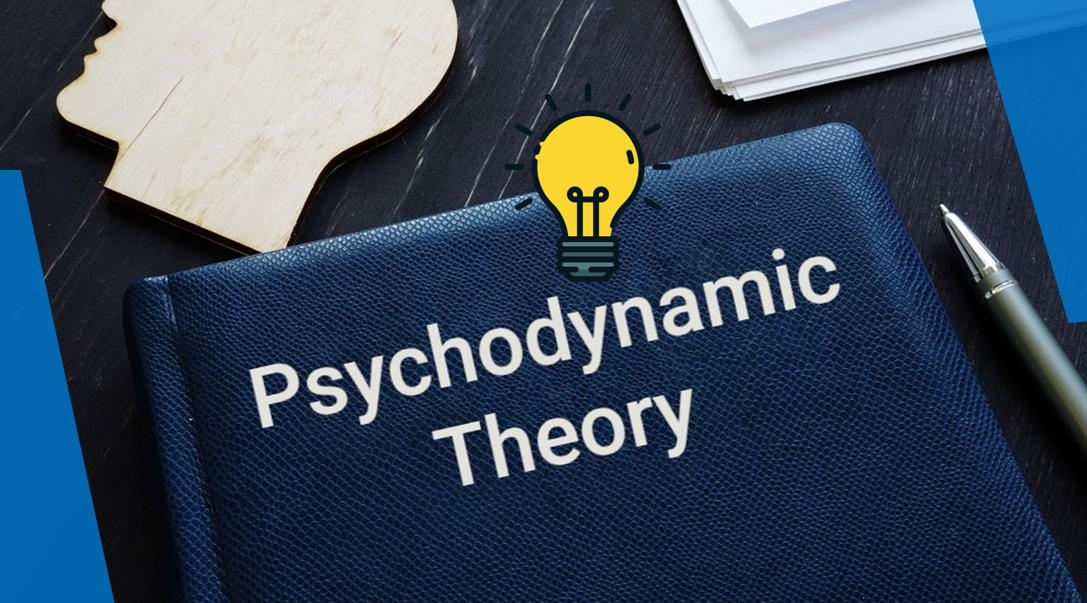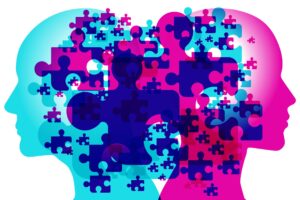Home » Unravelling the Intellect through Freud’s Psychodynamic Theory

Sigmund Freud’s psychodynamic theory is a pillar of psychology, providing deep insights into the workings of the human mind. You are about to go out on a voyage of self-discovery and investigation into the intricacies of mental health as students on the cusp of maturity.
The Human Mind as an Iceberg: Freud frequently compared the human mind to an iceberg. He held that just a small portion of our mind, known as the conscious mind, is available to our awareness, much as only a little of an iceberg is visible above the waterline. He asserted that the bulk of our mental functions occur in the unconscious mind, which is located below the surface.
Think of the conscious mind as the visible portion of the iceberg. It’s the conscious mind, the component that generates ideas, emotions, and perceptions. Contrarily, thoughts and emotions that are concealed from conscious consciousness reside in the unconscious. These unconscious beliefs, which are frequently influenced by early events in life, might have unforeseen effects on your emotions and behavior.
Nurturing Your Well-being for a Balanced Life
Freud postulated the id, ego, and superego as three structures to help make sense of the complexity of the mind.
Knowing how these three structures work together will make it easier for you to understand how internal conflicts affect mental health. For example, internal conflict can be a contributing factor to disorders such as anxiety and depression when the superego’s moral ideals collide with the desires of the id.

Freud postulated that our primal sexual and violent urges are what propel human evolution. Even though his thesis could seem contentious, it sheds light on how childhood events might influence an adult’s personality.
Unleashing Your Inner Strength: A Journey to Physical Power
Five phases of psychosexual development were distinguished by Freud:
You can better appreciate the long-lasting effects of early experiences on your personality and relationships by being aware of these stages.
Despite its significant contributions to psychology, Freud’s psychodynamic theory has not been without its detractors. Some contend that his theories are too sexualized and devoid of factual support. Furthermore, his theories have come under fire for being unduly deterministic, suggesting that an adult’s behavior is rigidly determined by their early experiences.
Freud’s psychodynamic theory is a useful place to start when navigating the complexity of mental health. It provides a distinctive viewpoint on the inner workings of the human mind by highlighting the impact of inner conflicts, early experiences, and unconscious processes on mental health.
Tips For a Healthy State of Mind
Discovering the secrets of the mind takes you on a trip to improve your understanding of yourself as well as make a valuable contribution to the always developing field of mental health. Thus, let Freud’s psychodynamic theory serve as your compass as you delve deeper into psychology and navigate the unexplored territories of the human psyche.
From
Anand Prakash Pathak
Associate Professor, HOD
School of Humanities & Social Sciences
Lingaya’s Vidyapeeth
Best College For BA Psychology in Faridabad
RECENT POSTS
CATEGORIES
TAGS
Agriculture Agriculture future AI Architecture Architecture design artificial intelligence BA Psychology BTech CSE BTech Engineering Business management career Career-Specific Education career guide Career Opportunities career option career scope Civil engineering commerce and management Computer Science Computer science engineering Data science degree education Engineering Engineering students English Literature english program Exam tips Fashion Design Fashion design course Higher Education Journalism journalism and mass communication law Law career Machine Learning MA Psychology Master degree mathematics MBA Mechanical Engineering Pharmacy Psychology Research and Development students
University Address: Nachauli, Jasana Road, Faridabad, Haryana
Toll Free: 1800-120-4613
Mobile : 8447744303 | 8447744304 | 8447744306 | 8447744309
Address: C-72, Second Floor, Shivalik, Near Malviya Nagar,
Above HDFC Bank, New Delhi 110017
Ph.No. - 011-46570515 / 45138169 / 41755703 / +91-7303152412
Jagmani Kutir, Ground Floor, Road No-1, Rajeev Nagar,
Near Darbar Marriage Hall, Patna-800024, Bihar
Contact No: 9818352069/ 8130120095
Mail: kanhaiya@lingayasvidyapeeth.edu.in
Copyrights © 1998 - 2025 Lingaya's Vidyapeeth (Deemed To Be University). All rights reserved.
It is important to note that the following email IDs and domains are fraudulent and do not belong to our university.
LV only conducts physical/online verification of any document related to examination on the following email id: